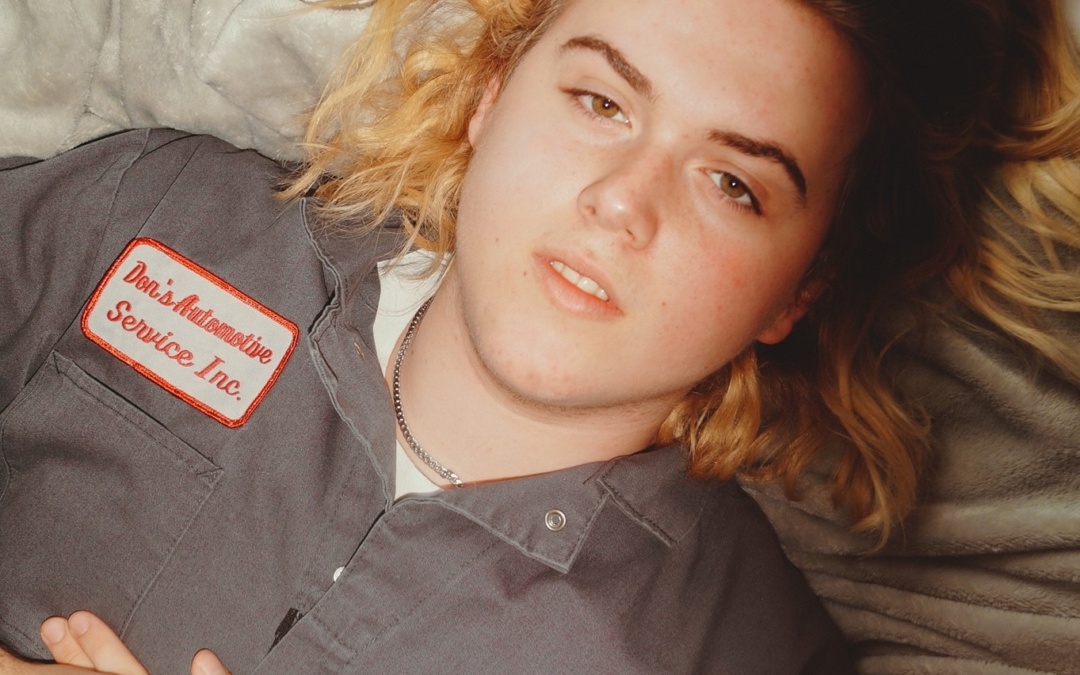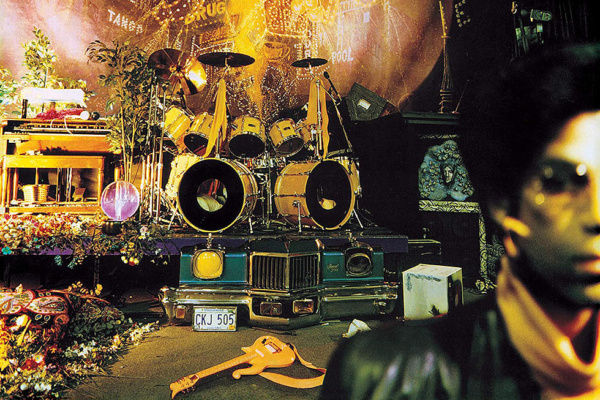
by Tiffany Czech | Dec 10, 2020 | albums, review
If you have been sitting around looking for the perfect way to entertain yourself as a cure for your boredom, it is perhaps most appropriate to turn to Antidote to Being Bored, Oscar Lang’s folk-rock experiment. Lang promises a high-volume experience with his newest release, starting with the EP’s title track all the way down to the final track, “Something Has Changed”, and every track in between. The entire track list is a blesses us with piercing electric guitars and bewitching melodies, perfect for both your winter run around the block or your quiet fireside music listening sessions. What makes this release stand out is the ability of every song to fit different moods and still be a fantastic choice.
Lang says of the EP:
I wrote Antidote to Being Bored to be an absolute blow-the-roof-off-the-stadium rock banger and I think it lives up to that. I wanted to get a little darker with this EP, while continuing the sound of the previous one. I feel like I really found a style of music that I love and am just excited to play. So, this release was all about developing that sound further.

by Tiffany Czech | Dec 7, 2020 | albums, review
LA-based R&B star Taylor DeBlock is pulling all of our heart strings with his new EP Manque. It is appropriately named, seeing as the running theme throughout the 6-track EP is how it feels to miss someone. The up-tempo spirit of the opening track “NECESITAS” perfectly captures the feeling of losing patience while waiting for somebody that you feel really complements your life. This same sentiment is echoed on tracks like “SAY” and “CALL ME”, both of which showcase the DeBlock’s romantic availability. There is room to slow things down, as highlighted by “RIGHT WAY”, a more vulnerable take on trying to understand the thoughts inside someone’s head.
DeBlock is providing the world with the perfect winter soundtrack for feeling stuck inside not only our homes, but even our own heads. With relatable subject matter that can resonate with a wide range of situations, Manque is here to sooth that often-frustrating feeling of having overbearing thoughts.
DeBlock says of the meaning of the EP:
Originally taken from the French ‘tu me manque,’ meaning ‘I miss you,’ the EP’s title displays a two- fold meaning. A ‘manqué’ is also someone who has failed to live up to an expectation – accepting what has become, the manqué eventually sees where they fell short and must carry on.
by Sadie Battle | Dec 4, 2020 | albums, review
If holiday cheer is something that seems a little hard to find lately, then check out Toddie Time, a unique collection of holiday classics from Michelle Malone and The Hot Toddies. On all six holiday songs, The Hot Toddies dive into nostalgic hits while reinterpreting your favorite Christmastide classics that range from toe-tappers that swing to sweet ballads that pull on your heartstrings. Their fun new arrangements all their own that display Malone’s vocal prowess and Doug Kees guitar skills. Malone and Kees are joined by Tommy Dean on upright bass, and occasionally Chris Burroughs on drums.
A particular stand out is “Blue Christmas”, as their version features an electric guitar solo with extra rifs all around. Malone’s vocal style and mood on this track is such a fresh and new take on this bittersweet classic. Their arrangement on “Santa Claus is Coming to Town” really showcases a great pairing of upright bass and electric guitar – making you feel like you’re back at your favorite neighborhood dive bar this holiday season, tapping your feet at some live music, and ordering a Hot Toddie. So go on, stream this holiday gift of songs today and be swept up in the cheer you’ve been looking for!

by Elizabeth Schneider | Nov 24, 2020 | albums, review
The gift of music is always the best and I was recently gifted a vinyl remastered copy of Sign ‘O’ The Times by Prince. And it is the best.
Originally released on March 30, 1987, the re-release on September 25, 2020, was a much-anticipated balm for this year of canceled live tours and shows. The songs on Sign ‘O’ The Times sound as fresh as they felt to audiences 30 years ago. Prince created a tour de force with wide-ranging genres, rock-solid vocals, and lyrics that stand the test of time.
Although “Sign ‘O’ The Times” and “U Got The Look” were the two singles off the album that got the most attention, there are so many more choices that will become favorites on your playlists. “Play In The Sunshine” and “Housequake” are back-to-back songs designed to get you moving. “If I Were Your Girlfriend” also never disappoints.
I have discovered my own new favorites – “Starfish and Coffee” is one of those. Written by Prince with Susannah Melvoin, it sparkles with fun lyrics and bright beats. It’s catchy and surprising. Additionally, Prince performed it with The Muppets in 2016, which makes it that much better!
I have played Side B of Album number Two three times now while I write and I see a fourth play in my future. “The Cross”, “It’s Gonna Be A Beautiful Night” and “Adore” are the three songs on this side. They are completely different from each other, but each one is brilliant.
Sign ‘O’ The Times is becoming one of my favorite albums in my collection. Although I was aware of, and heard, all of these songs over the years, I had never purchased the album to listen to in its entirety . Now that I have it, I will make up for lost time.

by ImperfectFifth | Nov 20, 2020 | albums, review
Hannah Grace has been praised by music legends like Lady Gaga, and you only have to press play on her new album, Remedy, to understand why. From top to bottom, this album is the story of finding and losing love, and in the end, becoming sure of yourself. Tracks like “Feels Like Home” and “Different Kind of Love” are the optimistic phase of falling in love. Both songs reflect on the past with the hope to move forward in what could be a safe and loving relationship. Grace does little to shy away from the more heartbreaking parts about falling in love, however. “Missing the Show” details the struggle of saying goodbye to a lover but recognizing that the back and forth has proven to be unsuccessful and therefore, it is time to move on. The more celebratory pieces like “Blue”, “How True Is Your Love”, and the darker layered “Live Like Love” represent the freedom and openness that we all long for in our lives.
With the help of radiant choirs, powerhouse vocals, and dance breaks when needed, Grace’s Remedy covers important ground when it comes to falling in and out of love. Not only does she give insights on how to love, but she also gives us an idea on how to heal.

by Tiffany Czech | Nov 10, 2020 | albums, review
Alt-pop artist Kat Saul’s newest EP, Made in the 90s, has been released, and is the perfect way to celebrate being human. “Alright”, a track about how hard it is to get somebody off your mind when you’re into them, starts off the celebration with an intro that sounds like it comes from a basement rock concert. “X2” is a catchy hit-worthy bop about moving on, or actually being tired of trying to move on. In all honesty, this should be in regular rotation at all Top 40 stations. Saul slows it down a bit with “Monsters”, where the celebrations are toned down in a search for inner peace and serenity. Not to worry, “I Love To Hate You” speeds everything back up with a sobering story of mutual frustration at the end of a relationship. Appropriately, the last song celebrates that person that is always by your side at the end of the day. This is the feeling of floating on “Cloud 9”.
Made in the 90s may have actually been made in 2020 or shortly before, but the music lives up to the name. A perfect blend of 90s rock and modern pop, Saul proves that you don’t have to escape older sounds to create new ones. She explains of the EP: “It’s me reflecting on who I am and what I’ve been through as I transition into adult life so that I can process how the past has made me who I am…because that’s what art is right?”





